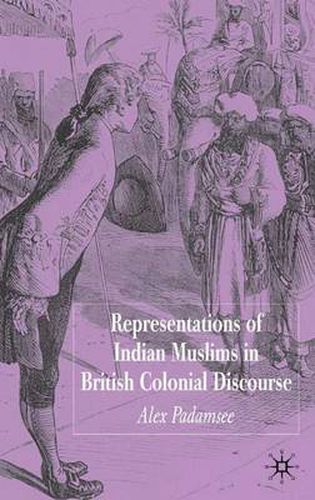Readings Newsletter
Become a Readings Member to make your shopping experience even easier.
Sign in or sign up for free!
You’re not far away from qualifying for FREE standard shipping within Australia
You’ve qualified for FREE standard shipping within Australia
The cart is loading…






This title is printed to order. This book may have been self-published. If so, we cannot guarantee the quality of the content. In the main most books will have gone through the editing process however some may not. We therefore suggest that you be aware of this before ordering this book. If in doubt check either the author or publisher’s details as we are unable to accept any returns unless they are faulty. Please contact us if you have any questions.
This study questions current views that Muslims represented a secure point of reference for the British understanding of colonial Indian society. Through revisionary readings of a wide range of texts, it re-examines the basis of the British misperception of Muslim ‘conspiracy’ during the ‘Mutiny’. Arguing that this belief stemmed from conflicts inherent to the secular ideology of the colonial state, it shows how in the ensuing years it produced representations ridden with paradox and requiring a form of descriptive segregation.
$9.00 standard shipping within Australia
FREE standard shipping within Australia for orders over $100.00
Express & International shipping calculated at checkout
This title is printed to order. This book may have been self-published. If so, we cannot guarantee the quality of the content. In the main most books will have gone through the editing process however some may not. We therefore suggest that you be aware of this before ordering this book. If in doubt check either the author or publisher’s details as we are unable to accept any returns unless they are faulty. Please contact us if you have any questions.
This study questions current views that Muslims represented a secure point of reference for the British understanding of colonial Indian society. Through revisionary readings of a wide range of texts, it re-examines the basis of the British misperception of Muslim ‘conspiracy’ during the ‘Mutiny’. Arguing that this belief stemmed from conflicts inherent to the secular ideology of the colonial state, it shows how in the ensuing years it produced representations ridden with paradox and requiring a form of descriptive segregation.